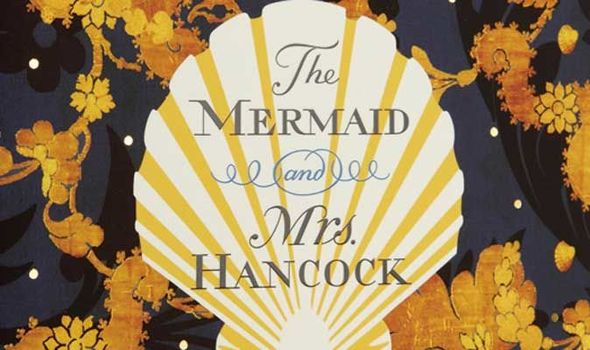
Mermaid and Mrs Hancock by Imogen Hermes Gowar is an amazing debut from an author with immense storytelling talent. You are either a story teller or not, there is no other way to fly the reader through some 500 pages.
I was lucky to read this book in parallel with my friend Umut -who is one of the most witty readers I know- and we did lots of discussion about the book whilst reading. We both liked it. Please have a look at her blog here as she has lots of amazing reviews.
This historic novel is compared with The Essex Serpent and The Miniaturist; I wouldn’t agree the latter as they seem completely different by means of story telling and structure, however it is indeed resembling Essex Serpent in a lot of ways- including the gorgeous cover.
The story is set in late 1700’s London. Mr Hancock, a wealthy merchant, acquires a mermaid unwillingly to compensate a loss in trade. Although he considers himself no showman, he is tempted to display the mermaid in hopes of making some money. His mermaid becomes an attraction soon enough and a ‘madam’, Mrs Chappell, seizes the opportunity making him an offer to display the creature for a week in her own establishment. As you can imagine, this is a brothel and Mr Hancock meets the beautiful, practical but no-so-calculated courtesan, Angelica Neal. Angelica is 27- only a few years before she loses her teeth, or gets gray hair, no longer desirable enough to be kept. She has been recently abandoned by a ‘keeper’ and looking for another one. Although she looks like a free woman from outside, unlike the mermaids floating in the sea freely, Angelica is imprisoned in the society depending on men for her living, in company of women like Mrs Chappell.
Forget your dignity. You can discover it again when you have made your fortune. As for disdain, there’s no place for it here. This world elevates the industrious man, and if you are canny it will elevate you. Disdain! Dignity! I never heard such squabbles.
says Mrs Chappell to one of the courtesans. The girls she spoke to, described as silent as mules in response. Inhuman. Creature-like. There is the magical creature in this novel, yes, but what Gowar also does is to portray humans as creatures of interminable wants and needs, always hungrily, selfishly seeking comfort, material or emotional. Take this conversation for instance:
‘Its appearance is unbeautiful. It is not what people expect of a mermaid.’
The visitor is impatient. ‘But it is a mermaid. He desired one and now he has one.’
‘It is, if I may say, monstrous.’
‘But it is real.’
The visitor straightens the collar of his coat and looks to his men. ‘It don’t matter what it looks like. It is desired by everyone and yet it belongs only to him.
Jonah Hancock and Angelica Neal, although not initially attached to each other, will be bonded by the mermaid.
I would be shy to classify this novel as historical. Yes, it takes place in Georgian Era and masterfully creates the atmosphere, we linger in 1700’s London through the book. But there is so many subjects the book touches on beyond the time and history.
Put them all on a boat and send them away where they came from, that is my solution to the matter, If they cannot earn their keep, we’ve no room for them here.
says one of the characters, about migrants, which could easily be adapted to today’s world. To be honest, that character was feeling so Tory. I loved this bits of witty dialogue, here and there, which made this a great read for me.
There are a lot of metaphors in the book, but not much magical realism really, except just towards the end it is quite a solid and realistic story. It’s difficult to classify but I wouldn’t call this book a work of fantasy or magical realism.
The mermaids, being hunted, displayed, imprisoned, forms a strong subtext of human’s cruelty to other creatures in this story- I couldn’t stop thinking about the imprisoned Dolphins while reading- just for the desire of owning, or entertainment.
Also the imprisoned mermaid sending waves of grief is a breathtaking metaphor of a kept woman (wife or courtesan), which deeply effected me and is one of the reasons I would classify this as an all-time-favourite read, despite the little flaws. (It’s a debut, so let’s forget about Polly and her little stream of story line in this deep ocean of 500 pages)
One last thing: I loved the ending.
Happy reading!
Amazing review Ova as usual! I had a lot of fun buddy reading this with you. Let’s plan the next one 🙂
LikeLike
I enjoy a book which makes me think. It sounds like this one with its hints and sub tones would be something I would enjoy. I’m sold, thank you! 😊
LikeLiked by 1 person
Thanks for visiting Vera! Let me know if you read it and like it 🙂
LikeLiked by 1 person
Will do for sure!
LikeLike
[…] can’t say I am a fan of judges selections this year. I was very surprised that books such as Mermaid and Mrs Hancock, Whistle in the Dark or Bitter Orange didn’t make it to the […]
LikeLike